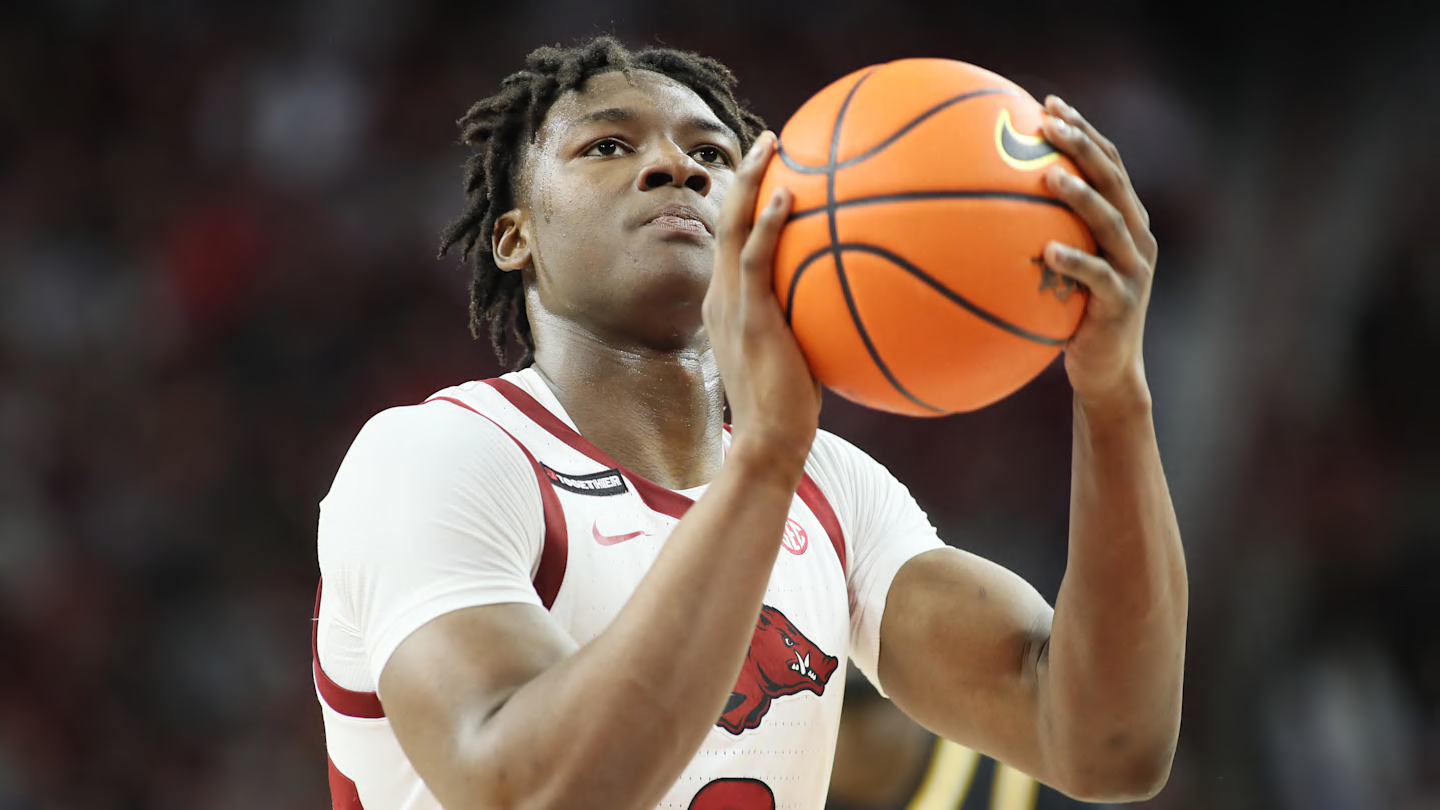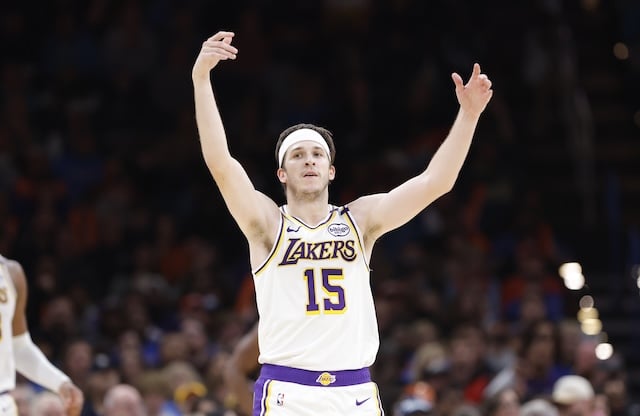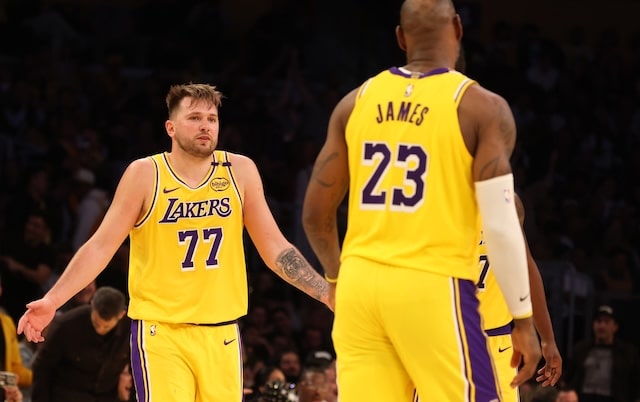What LeBron James Opting Into Final Contract Year Means for the Lakers
LeBron James has opted into the final year of his contract, James’s agent, Rich Paul, told ESPN this week, ensuring the Lakers will field a lineup with two All-NBA talents next season.
Great news, right?
Right?
On the surface, James’s decision to opt in looks like a win for the Lakers. They get James, still remarkably one of the league’s top talents, for one more season. The James–Luka Doncic pairing showed flashes of brilliance after Doncic was acquired last February. Give the duo a full training camp together and it should function even better.
That James would opt in was surprising, if only because James never opts in. Take a look at James’s history. In Cleveland. In Miami. In Cleveland, again. Even in Los Angeles. Whenever he has had an opportunity to spring himself from a contract, he’s taken it. Sometimes to get a better deal. Sometimes to exert influence over roster construction before signing a similar one.
So why opt in now? Was it the scarcity of suitors that James could have used for leverage? Was it to protect the no-trade clause in the current contract? Did James believe if he declined the $53 million player option the Lakers (gasp) might not offer the same number?
Probably not. But more curious was Paul’s statement confirming the opt-in. It started fairly benign. “LeBron wants to compete for a championship,” Paul said. Pretty boilerplate. “He knows the Lakers are building for the future,” he added. There’s a pivot. Paul continued, “He understands that, but he values a realistic chance of winning it all.”
Sound like a guy all in on next season in Los Angeles?
Which brings us to the other, more likely reason for James’s opt in. If James had opted out and signed his typical deal—two years, with the second a player option—it would have made him ineligible to be traded before Dec. 15. By opting in, for the next few months James, er, keeps his options open.
“We understand the difficulty in winning now while preparing for the future,” Paul said. “We do want to evaluate what’s best for LeBron at this stage in his life and career. He wants to make every season he has left count, and the Lakers understand that, are supportive and want what’s best for him.”
The Lakers will field a competitive team next year. Doncic is a true superstar, who will undoubtedly put in the work this offseason (Revenge Bod Luka) and come into next season with something to prove. Austin Reaves could be an All-Star. The Lakers replaced Dorian Finney-Smith (a proven 3-and-D wing) with Jake LaRavia (a less-proven three-and-D wing) and as of this writing are still on the hunt for a starting center. Deandre Ayton is reportedly the front-runner. Yikes.
Throw James into that mix and the Lakers are pretty good. At 40, it’s downright astonishing that James is this prolific. He played 70 games last season, averaging 35 minutes per game. He shot 51.3% from the floor and 37.6% from three. He averaged 24.4 points, handed out 8.2 assists and collected 7.8 rebounds. At any given time, James can be the best player on the floor. Any floor.
But are they Oklahoma City good? The Thunder won 68 games and may actually get better next season. Are they Houston good? The Rockets armed up this offseason, trading for Kevin Durant, signing Finney-Smith and Clint Capela. Denver flipped Michael Porter Jr. for Cam Johnson and brought back old friend Bruce Brown. Dallas may have the NBA’s best front line. If Kyrie Irving can return from an ACL tear by midseason, look out.
The Western Conference is a minefield. And when the dust settles on the offseason, James may look at the Lakers’ roster and determine it’s not good enough to navigate it to the top.
So where would James go? On ESPN, Bobby Marks—the ex-Nets exec who understands the NBA’s salary cap as well as anyone—said there was no real market for James. The NBA’s apron era has made trading players with James’s salary exceedingly difficult. Most of the teams that want him would have to gut their roster to get him. And James, thanks to his no-trade clause, would have to want them back.
Would they do it? Would Dallas offload its bench to bring in James? Would Cleveland ship Darius Garland, Jarrett Allen and others to bring LeBron back again? Would the Knicks stuff OG Anunoby, Josh Hart and Deuce McBride in a package to finally get James in New York? A straight LeBron–Jimmy Butler swap would work with Golden State. But it’s hard to see the Lakers interested in that.
And that’s the other side of it. Los Angeles wants to win next season. But not at the expense of the years after. The Lakers project to have clean books in 2026. Doncic will likely sign an extension—a three-year, $165 million deal is what Doncic is widely expected to agree to in August—and L.A. will have the flexibility to build a team around him. Shooters, springy centers, defensive-minded wings. Dallas had the right formula to win with Doncic. The Lakers will look to replicate it.
Which could make the next few months interesting. In his statement, Paul noted the strong relationship James enjoyed with owner Jeanie Buss and general manager Rob Pelinka. “We are very appreciative of the partnership,” Paul said. It’s possible, even likely, that James will embrace the chance to play another season with Doncic and alongside his son, Bronny. If he doesn’t, we will find out how far the Lakers are willing to go to make James happy.











